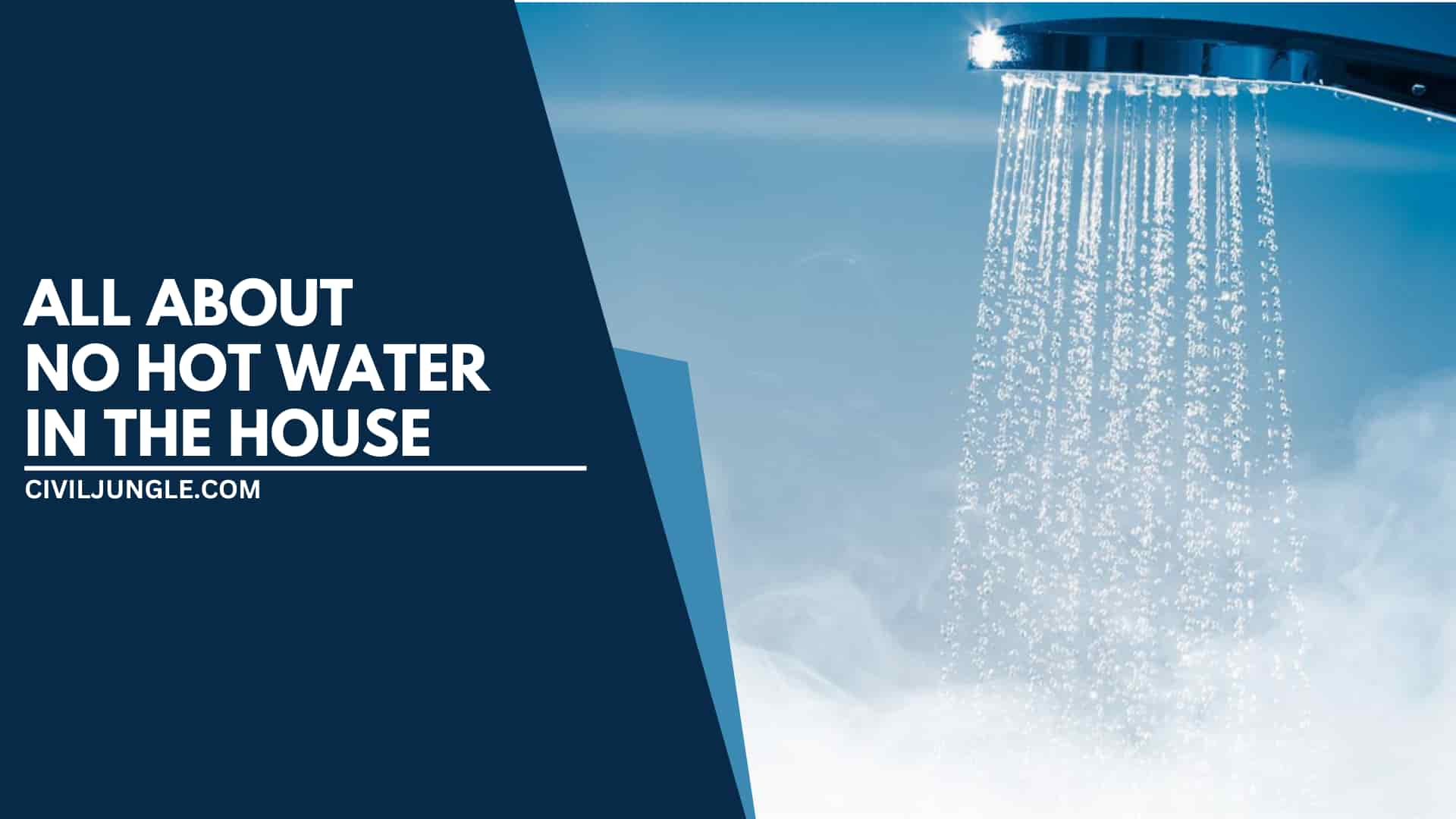
Introduction of No Hot Water in House
Dealing with no hot water causes in the house presents several challenges, but there are also solutions available. There is most common issues finding of the type of water heater have installed. The problems are generally solved quickly, and they should always be considered.
When pondering why is my hot water not working, there are common problems; each water heating system has its specific issues. So firstly we shall look at the different systems, and then discuss what could be the problem when we have no hot water.
No Hot Water In House: Common Causes and Fixes
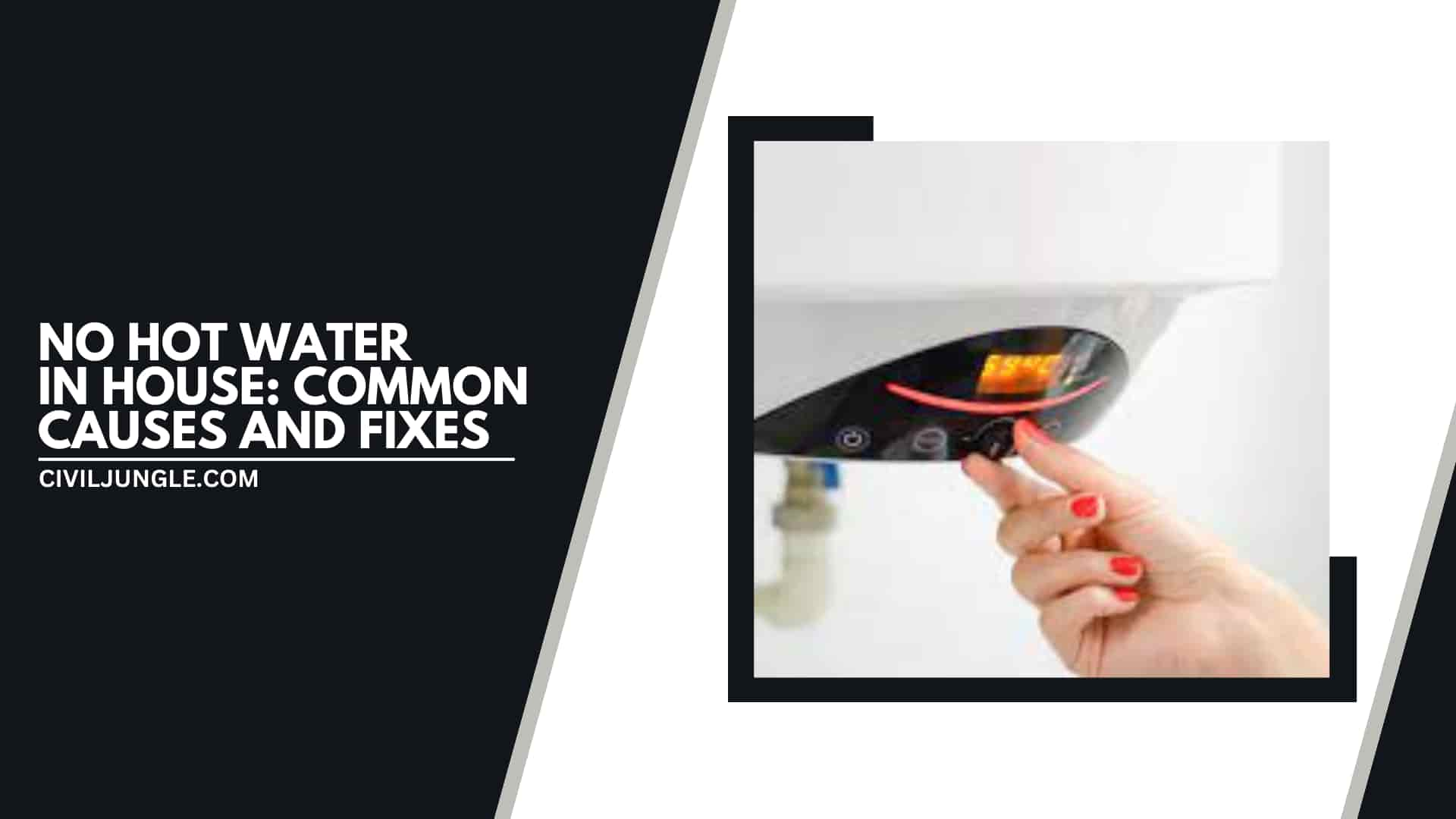
There are most common issues finding of the type of water heater have installed. The following problems are generally solved quickly, and they should always be considered.
1. Leaking Tank
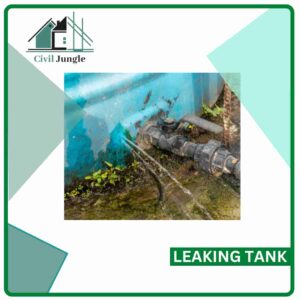
This problem may require replacing the entire tank if the source of the tank is checked between the appliance and its valves and the pipes. When checking the leaks, you should be very careful as the water may be hot. A water heater does its job; it has to be water in the tank.
If it isn’t hot water, it generally means that the tank is leaking. So, an empty tank is a serious problem and isn’t at all energy efficient. And check the tank’s compartment. There is water in the tank’s compartment; it’s most usually time to replace the appliance.
2. Quantity Vs. Demand
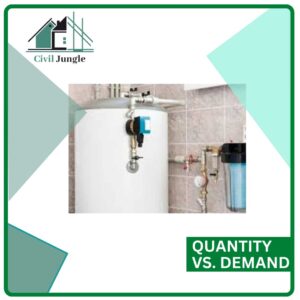
Specially, in a busy home is an empty tank is the most common reason for water to remain cold. The water heaters work to heat the amount of water that fills the tank.
This tank has a limited capacity. This hot water in a short time will empty the tank’s supply faster than the heating elements can replace it. Tanks commonly require time is half an hour to build up a sufficient supply once drained.
In the event, this particular problem is constantly passing, when want to consider upgrading to a larger capacity heater. Water heaters are frequently installed based on an estimate of the demand for the current house.
3. Sediment Buildup
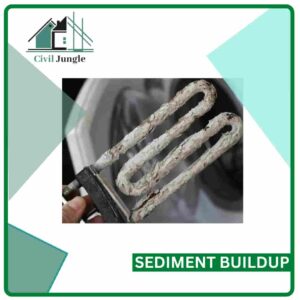
This problem occurs naturally and is frequently accompanied by a reverberating sound if there are many buildups. The sediment absorbs heat from the water, making it more difficult for the heating elements and shortening their life spans.
We should regularly flush the tank to prevent sediments such as calcium from solidifying, destroying a tank over time.
4. Thermostat
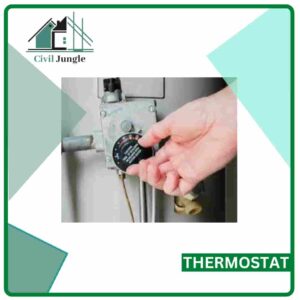
Hot water is produced by a Water heater and is energy effective. The thermostat slightly adjust may be enough to keep the water hot. The water getting into the tank’s compartment for any reason must perhaps cause the thermostat to short out.
The thermostat must be set between 122 and 140 degrees Fahrenheit. If there is no hot water, the force is unacceptable or too hot, check the upper thermostat.
If the thermostat is burned, it should be replaced. Lack of regular maintenance can cause issues, indeed though the thermostat is working because of sediment buildup.
5. Electric Water Heaters
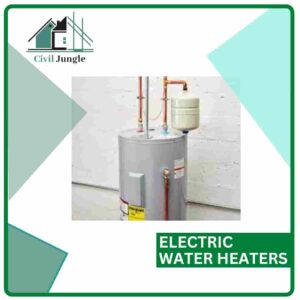
For those with electric water heater no hot water issues, electric heaters often face problems like shorts, which are common in electrical appliances. The most common problems are found in an electric heater.
6. Breakers, Fuse, and Reset Button
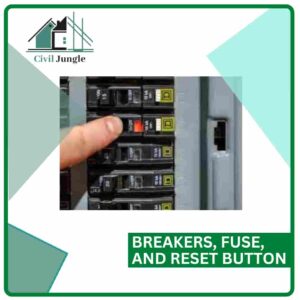
A blown a fuse or tripped breaker shall be easily disabled in the heater. In most cases, resetting the breaker shall be enough. This issue will require replacing the breaker or fuse with a higher amperage unit. Such as breaker, a reset button that trips frequently will need replacing.
7. Gas Water Heaters
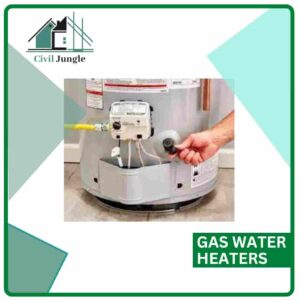
For those wondering about no hot water gas water heater issues, gas heaters have several distinct parts that differentiate them from electric heaters. In many cases, problems are related to these components. It must be handled by the home owner with standard tools.
8. Grounding
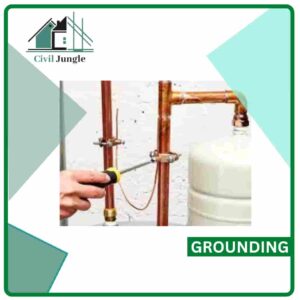
Grounded components can list out the heater and damaged parts. The object should be checked, which causes wires to touch and remove the wires. If our heating element or thermostat is grounded, we will need to replace that component.
9. Pilot Light Assembly
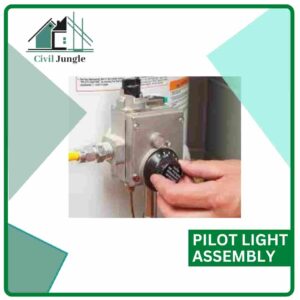
The pilot light assembly contains the pilot light, thermocouple, and burner. The potential problems can affect the heater’s performance. The following are the most common issues:
9.1 Blocked Flue
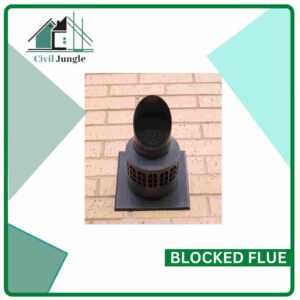
- The storms may be blocking the flue.
- The air forced down can extinguish the pilot.
- It should be cleaning the flue can be messy.
- It is a straightforward task.
9.2 Clogged Burner
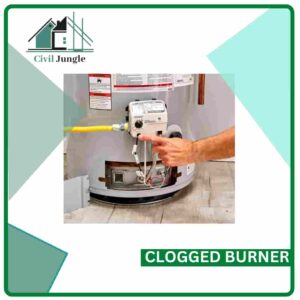
- Residue can slowly build up on the burner over time and develop clog.
- This can prevent the burner from functioning.
- It should be regularly removing and cleaning this element will help to maintain the heater’s effectiveness.
9.3 Clogged Pilot

- The opening which produced the pilot light may be clogged like a burner.
- It should be regular cleaning will help improve performance.
9.4 Thermocouple
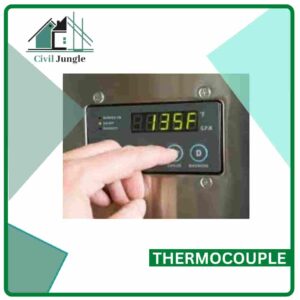
- These elements should be in the pilot light’s flame.
- The connection must be secure to the gas line.
- It should be checked for kinks and replaced the component.
10. Supply Line
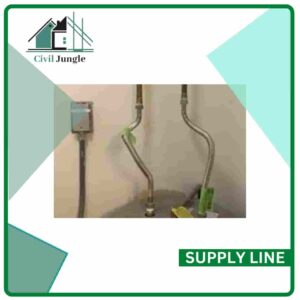
There are many problems that may affect the supply of gas going to the heater. It should be checked the supply such as no pinhole leaks or other damage. A supply line (damaged line) should be replaced immediately to prevent the risk of fire or explosions.
11. Sorts
A sort in the wiring may prevent not only a fire hazard but also the heater from properly functioning. It should be checked every wire for signs of damage and replaced as needed.
Why Do I Have No Hot Water?
If you’re thinking, why is there no hot water in my house, it’s because of the following issues occurring in my home. If I uses water heater in a tank, many problems find it. Following are the issues found in my home.
1. Leaking Tank
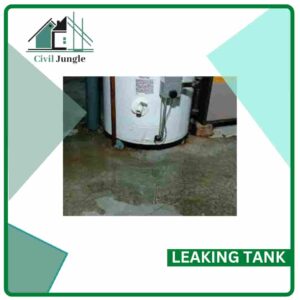
A water heater does its job; it has to be water in the tank. If it isn’t hot water, it generally means that the tank is leaking. So, an empty tank is a serious problem and isn’t at all energy efficient.
Connections are checked between the appliance and its valves as well as the pipes. And check the tank’s compartment. There is water in the tank’s compartment; it’s most usually time to replace the appliance.
2. Gas Leak
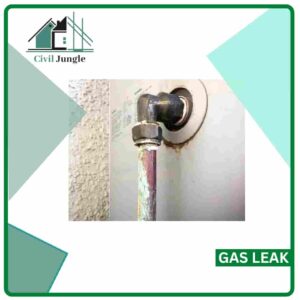
acing a lack of hot water due to a natural gas leak from my water heater is both inconvenient and hazardous. If I suspect that gas is leaking, call my gas company as soon as possible.
The professional gas company’s technician focus is not to repair hot water heater. It is affected by his assessment of the appliance. The gas company will work on results. If there is a natural gas leak, If there is no gas leak, my troubleshooting journey continues.
3. Electric Water Heater Malfunction
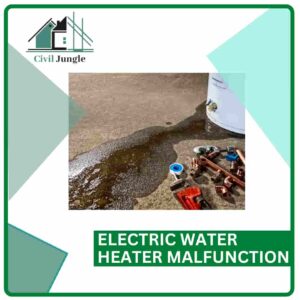
When considering reasons for no hot water, and focusing on my water heater, energy efficiency is crucial. Gas water also an electric heater can both be effective at making sure not dangerous, no hot water in the house.
The electric interpretation relies on electricity. If my home has no hot water, firstly turn off the heater. Also, reset the circuit breaker.
However, my home will receive hot water again after about an hour; if the breaker tripped, A circuit breaker’s con tinuous trip is a bad sign, so hit the reset button.There is still an issue; I suggest a well-qualified electrician.
4. Failing Gas Valve
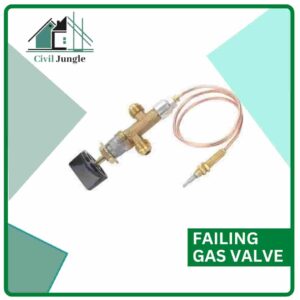
This has a gas water heater and has no hot water should check the appliance’s supply line. It may be secure and in the correct place. Take a look at the gas valve; there are no leaks. Also, double-check that the gas is on.
The gas valve is good or not, inspect the pilot light. I need to re-light the pilot several times. It must stay lit. Due to impeding the gas supply, the gas line could be the culprit. So, it is Time to invest in an energy-efficient new water heater.
5. Malfunctioning Thermostat
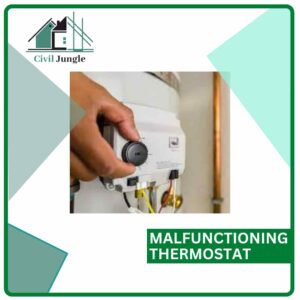
The hot water is produced by a Water heater and is energy effective. Between 122 and 140 degrees Fahrenheit, The thermostat must be set. If in-house is no hot water or the forces not acceptable or is too hot, check the upper thermostat.
If the thermostat is burned, it should be replaced. Lack of regular maintenance can cause issues, indeed though the thermostat is working because of sediment buildup. To fix this, flush my water heater.
6. The Weather
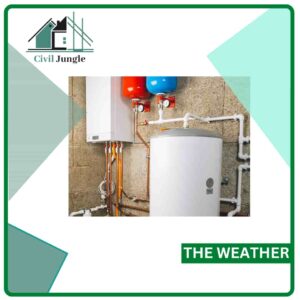
The outside temperature determines how readily water can be heated. If I stay in an area that experiences cold temperatures, this can impact my system and cause water problems. I may need to ride out the cold and then isolate the appliance.
7. Tank Size
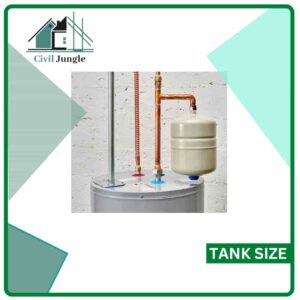
If my tank is small, my household isn’t going to be energy effective and is going to run out of hot water faster. Perhaps the appliance did its job when it was just my spouse and me.
As my family grew, still, so made the demand for hot water and lot further hot showers. It is time for a larger hot water tank. The electric water heaters take longer than gas water heaters to heat.
8. Recommended Tools and Materials
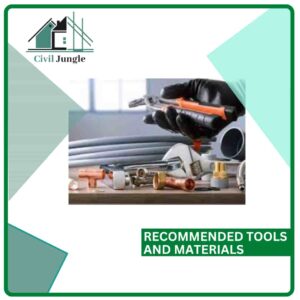
This should be energy effective in the home; I want to replace or repair the home’s water heater by myself. They always suggest allowing a well-qualified electrician to take care of the job. However, if I enjoy trying DIY projects and have some experience, I will need tools like screwdrivers, wrenches, etc.
9. Electrical and Plumbers Tape
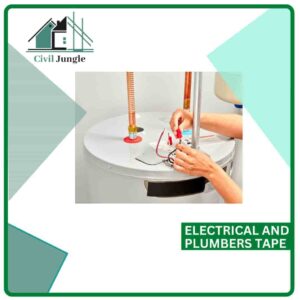
- Safety glasses
- Soldering torch
- Tube cutter
Conclusion
Facing no hot water in house but have cold water gas or no hot water in house but have cold water electric situations presents many causes and solutions. Each type of water heating system also has its specific kinds of problems.
So firstly we shall look at the different systems, and then discuss what could be the problem when we have no hot water.
FAQ: No Hot Water in Your House
What Should I Do If My Water Heater Is Leaking?
If you discover that your water heater is leaking, check the connections between the appliance, its valves, and the pipes. If water is present in the tank compartment, it’s usually time to replace the appliance. Always be cautious when inspecting for leaks, as the water may be hot.
Why Is My Hot Water Running Out So Quickly?
This issue may occur if the water demand exceeds the capacity of your tank. Water heaters have limited capacities and may require time to heat a new supply after being emptied. Consider upgrading to a larger capacity heater if this is a persistent problem.
How Can I Prevent Sediment Buildup in My Water Heater?
Regularly flushing the tank helps prevent sediment buildup. Sediments like calcium can absorb heat and reduce the efficiency of your heater. Flushing the tank helps to maintain its performance and longevity.
What Should I Check If My Thermostat Is Not Working?
Ensure the thermostat is set between 122 and 140 degrees Fahrenheit. If the thermostat is not functioning properly, it may need to be replaced. Also, sediment buildup can affect its performance, so regular maintenance is essential.
What Are Common Issues with Electric Water Heaters?
Electric water heaters may face issues such as tripped breakers or blown fuses. Resetting the breaker might resolve the issue. If the breaker continues to trip, consult a qualified electrician to inspect and possibly replace the breaker or fuse.
How Can I Address Problems with My Gas Water Heater?
For gas water heaters, check for common issues like a malfunctioning pilot light assembly or gas supply problems. Ensure the pilot light is lit, and check for blockages or leaks in the supply line. Contact a professional if you suspect a gas leak.
How Does the Weather Affect My Hot Water Supply?
Extremely cold weather can impact the efficiency of your water heater, particularly if it’s located in an unprotected area. In very cold climates, the water heater might struggle to maintain the desired temperature.
Why Is My Tank Size Important?
A smaller tank may not meet the hot water demands of a growing household, leading to frequent shortages. Upgrading to a larger tank can ensure a more consistent supply of hot water.
What Tools Are Recommended for Diy Water Heater Repairs?
If you choose to handle repairs yourself, you’ll need tools like screwdrivers, wrenches, safety glasses, and potentially a soldering torch or tube cutter. Always ensure safety and consider professional help for complex issues.
When Should I Call a Professional?
If you encounter persistent issues, suspect gas leaks, or feel unsure about performing repairs, it’s best to call a professional plumber or electrician. They have the expertise to diagnose and resolve problems safely and effectively.

